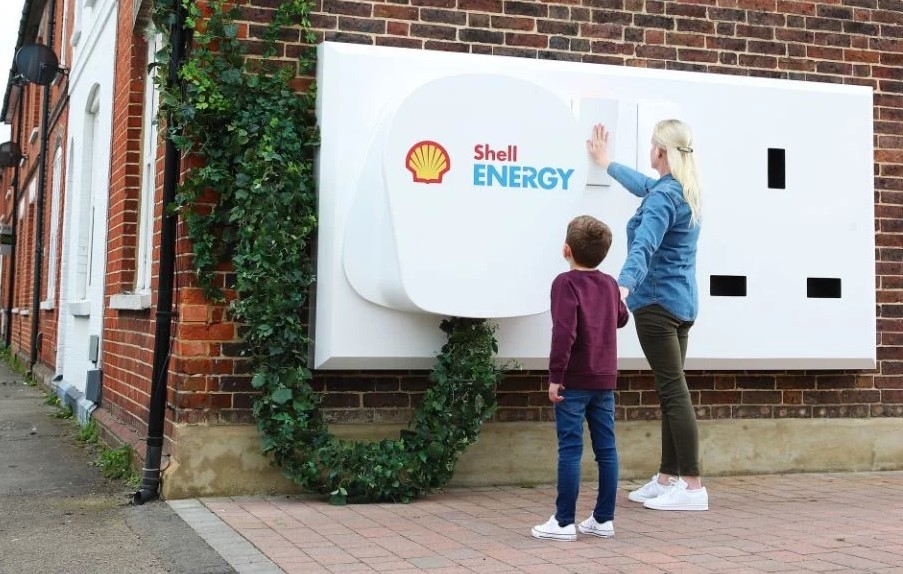Shell Energy said its decision to rebrand was a “line in the sand” as it pledged to kick-start a consumer-facing revolution in the supply market.
Earlier this week Shell rebranded its First Utility unit as Shell Energy, switching all of its customers to renewable power supply in the process, a decision which chief executive Colin Crooks described as “bold” given Shell’s brand identity and position.
Speaking at yesterday’s Future of Utilities Summit, Crooks said that the rebrand was a “line in the sand, a statement of intent” from Shell to play a leading role in the energy transition.
“For Shell, the energy transition is not just a matter of survival, it’s a massive business opportunity and it’s imperative to respond,” Crooks said.
Crooks used forthcoming climate targets as a backdrop for its rebrand, arguing that the challenges the energy industry will have to the face in the coming years are “unprecedented”, and would require consumers to be brought into the proposition at every corner.
“That shift won’t happen unless we put the customer experience front and centre. It won’t happen unless we make propositions that are easy, compelling and quite frankly unnoticeable for the customer,” he said.
Shell Energy’s launch offering includes a raft of discounts and special offers, some of which lean heavily on its other brands and business units. All of the supplier’s customers will receive 100% renewable power – and, at current prices, significantly cheaper than some of its rivals – alongside a 3% discount at Shell-branded petrol pumps, free Nest smart thermostats and discounted NewMotion EV chargers.
Crooks confirmed yesterday that sonnen-branded home batteries will soon follow in what could be a game changer for the UK industry. Sonnen’s batteries, dubbed by Crooks yesterday as the “best home battery storage solution in the world”, have already been deployed in the UK through other partners, but offering them at discounted rates to Shell Energy’s 700,000-strong customer base stands to ramp up installation rates significantly.
The Shell Energy rebrand has capped off a frantic start to the year for the O&G major’s New Energies division, joined by both its acquisitions of sonnen and virtual power plant specialist Limejump. They join the likes of EV charging firms NewMotion and Greenlots within the New Energies department which also counts consumer billing app Wonderbill as a product.
Crooks said they all contributed towards Shell’s vision of the energy future, where the customer is fully in control.
“What’s exciting about this is that each part of the story is actually working somewhere in the world. We haven’t had to invent it all from scratch… but while much of the world does some of this well, nowhere is pulling it all together.
“And that’s the opportunity we see today, to find the best people, to invest in the best technologies and bring them together in ways which empower and excite our customers,” Crooks said.
Extending the olive branch
Crooks also used his time on stage to acknowledge the richly competitive landscape that the UK’s supply market has become. More than 10 independent suppliers have ceased to trade since the start of last year and earlier in the day, the likes of E.On UK chief Michael Lewis and Engie boss Wilfred Petrie railed on the introduction of the SVT price cap which, they said, was the wrong policy to introduce.
But, despite those pressures, supply markets in Europe are not short of willing participants, especially from outside the energy sector entirely. Crooks pointed to Volkswagen’s decision to launch a supply division and Mitsubishi’s purchase of a stake in UK challenger OVO, stating that Shell “welcomed” the competition.
But, he said, it was time for energy companies to work together, alongside government and other regulators, to ensure the transition takes hold.
“We need to move collectively to the next phase of the energy transition. We want to work with government to deliver an inclusive energy transition, one where low carbon energy moves from a ‘nice to have’ to an essential service,” he said.
Crooks delivered a wish-list of government regulation that he said would go some way to improving the landscape for consumers, alongside far more rigorous building standards and deeper incentives for energy efficiency technologies, as well as “time-limited incentives” for heat and battery storage technologies which would allow low income households to access time of use tariffs that can save them money.
He also said a reform of EV charging was in order, mandating that customers can charge any time, anywhere and with any provider, encouraging the move to open, collaborative charging networks.
“These simple changes and others like them will ensure the UK remains not only a leader in the energy transition, but that the UK energy transition continues to enjoy popular support,” he said.
Crooks’ overriding message was that while the energy transition was unquestionably a long-term endeavour that would require “enormous levels of investment and profound changes in consumer behaviour”, its success was imperative.
“We don’t know exactly how the energy transition will play out, how long it will take or the perfect mix of products and services to enthuse and excite our customers, but we do know the path of technological disruption has never been more profound… our job now is to work together to translate these innovations into a better customer experience for all customers, and to show that we, the energy sector, are on their side as we move to a cleaner, smarter energy system.”





